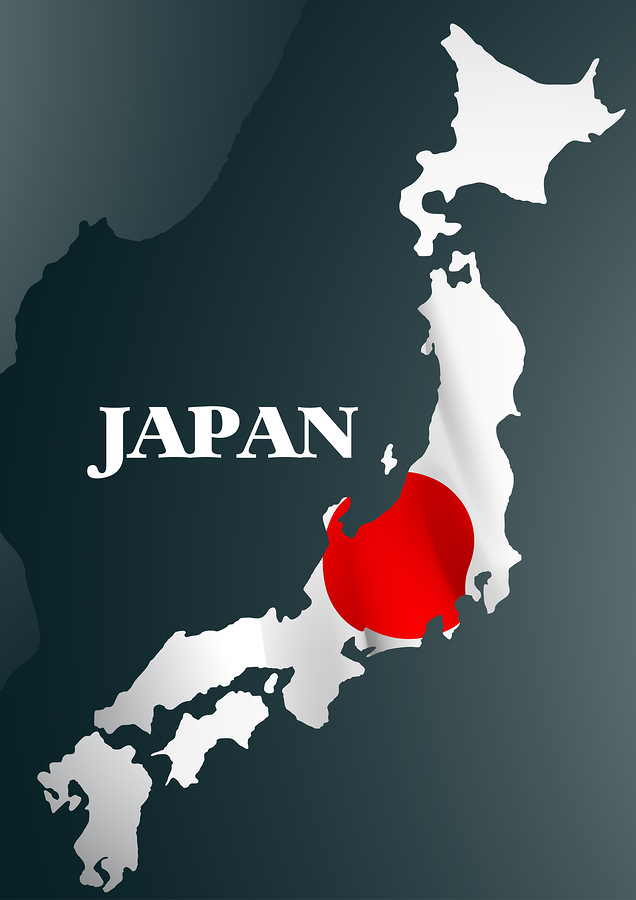Shoppers Tightening Purse Strings Make Japan’s Retailers See Red

Supermarkets and clothing stores will probably cut prices more to spur sluggish sales, which caused Aeon Co., the nation’s biggest retailer by sales, to report its worst first quarter in eight years — a 6.3 billion yen ($62 million) loss. Seven & i Holdings Co. posted operating profit that missed analysts’ estimates as its department store business that includes retailer Sogo & Seibu widened its operating loss to 1 billion yen.
Aeon joined Fast Retailing Co. in pledging to offer cheaper products — a strategy that may drag down spending and frustrate Prime Minister Shinzo Abe’s effort to fight deflation and revive the world’s third-largest economy. Last month, Abe postponed a sales-tax increase by two years to avoid further declines in consumer spending.
“The exit from deflation is getting more distant, or rather the deflationary mindset is rising,” said Mitsushige Akino, executive officer at Ichiyoshi Asset Management Co. in Tokyo. “The drops in stock prices, the negative interest rates and the delayed tax hike — all you get is something bad. Consumers’ psychology is not heading in a positive direction.”
Deflation Concerns
Economic data are stoking concern that Japan is falling back into deflation. Retail sales in May fell 1.9 percent from a year ago. Consumer prices excluding fresh food — the Bank of Japan’s benchmark measure — dropped for a third straight month in May, sliding 0.4 percent.
Spending has become so weak that Aeon will need to increase the focus on price appeal, Soichi Okazaki, Aeon’s vice president who oversees its general merchandise store business, told reporters in Tokyo Wednesday after reporting results that “fell short of our expectation.”
The Tokyo-traded stock plunged 8.2 percent to 1,501 yen at the close, the most in almost six months, a day after saying operating profit fell to 32.9 billion yen in the March-May period from 34.9 billion yen a year earlier as the general merchandise store business and overseas operations struggled.
“We realized the consumption trend got weird from February, and then the sales-tax delay confirmed the downturn, making people hold purse strings even tighter,” Okazaki said. Aeon kept its full-year forecast for net income of 10 billion yen and operating income of 190 billion yen.
Yen Strength
Consumers’ anxiety about the future and a stronger yen, which reduced the value of profit abroad when repatriated, weighed on Aeon’s earnings, Akinori Yamashita, the company’s executive vice president, told reporters.
“The environment for retailers has been slowly worsening since the winter,” said Dairo Murata, an analyst at JPMorgan Securities Japan Co. “And the trend is likely to continue. Consumers are picking what they buy very carefully.”
First-quarter operating profit at Seven & i fell 0.5 percent to 81.5 billion yen — below the 84.2 billion-yen average estimate of analysts in a Bloomberg survey, the company reported Thursday.
Net income increased 2.2 percent to 43.2 billion yen, though missed the 45.5 billion yen average analyst estimate compiled by Bloomberg. Sales across the retail group’s businesses, including convenience stores and supermarkets, fell as the operating loss at the group’s department store unit widened to 1 billion yen from 92 million yen.
‘Even More Picky’
“The outlook for private spending still remains uncertain and our consumers are getting even more picky,” Seven & i said in a statement.
The shares closed 0.1 percent lower at 4,145 yen before the earnings announcement Thursday. Its convenience store chain rivals FamilyMart Co. and Lawson Inc. are set to report earnings Friday and the following Monday.
FamilyMart’s sales will probably remain capped this year, as it contends with increasing challenges from a possible recession, fewer Japanese smokers and a shrinking population, wrote Bloomberg Intelligence analyst Thomas Jastrzab in a Wednesday report.
To read Bloomberg Intelligence’s analysis on FamilyMart, click here.
Tadashi Yanai, Japan’s richest person and the chairman of Fast Retailing Co., tweaked his pricing strategy for Uniqlo clothes after losing some budget-minded consumers following price increases for the brand’s fall and winter wear due to higher fabric costs.
Uniqlo wants to maintain a low-price strategy “because the Japanese economy is certainly not strong and people have been struggling for a long time,” Yanai, 67, said in April, when the company reported a 60 percent decline in operating income for the second quarter and lowered its full-year forecast for the second time in a year.
He reiterated the pledge to offer the “lowest possible price” in May, when Uniqlo revealed its fall and winter line-up, including a military-inspired bomber jacket and brightly colored down-filled coats. Fast Retailing is scheduled to report earnings July 14.







No Comment